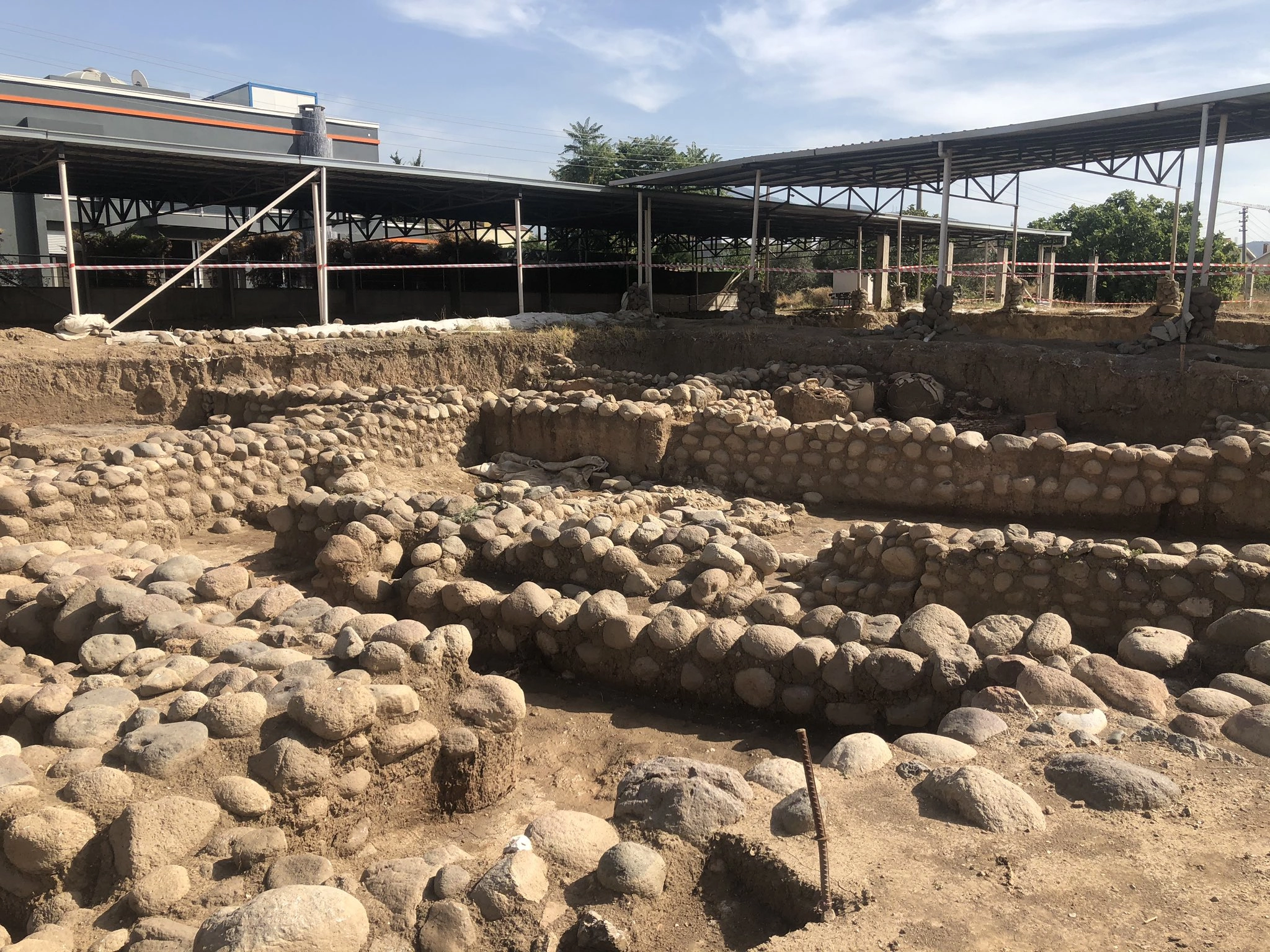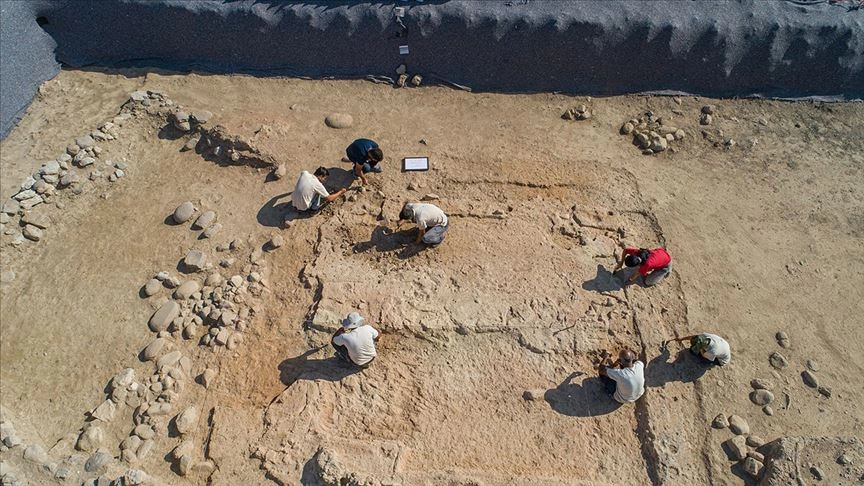One of the earliest workshop areas, showing the village life, pleasure, eating and drinking culture of the people of dating back 8,200 years was found during the excavation work carried out in the Yeşilova mound.
Earlier in September water channels in history dating back 8,200 years were found in the area.
Ege University Faculty of Letters Archaeology Department member and head of the excavations, Associated Professor Zafer Derin said, “We have been working in the Yeşilova Mound for about four months. We can unearth striking finds. We found a workshop showing the village life, pleasure, eating and drinking culture of the people of İzmir, especially in the first village life. Here, there are 10 villages built on top of each other. These villages, dating back to the Neolithic period, have been destroyed and rebuilt.”
Stating that they found stone and bone tools in the workshop, Derin said, “There are mainly axes and cutters. It is a beautiful structure with many bowls and pottery depicting the life in antiquity. We also found many crustaceans called solens, which reveal the village’s connection with the sea. We think they ate these solens while working. The first society of İzmir, who lived in the Neolithic period, tried to produce and maintain their connection with the sea throughout their lives,” he said.
The findings from the joint project between the Culture and Tourism Ministry of Turkey, Ege University, and the local authorities, are significant because they suggest that the historical settlements in the Izmir area go back 8,500 years, to 6500 BCE.








